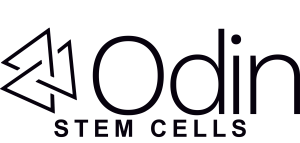ODIN Stem Cells
FAQ
Common Questions
WHAT ARE STEM CELLS?
Understanding the Role of Stem Cells in Regenerative Science
Stem cells—often referred to as the body’s building blocks—are being studied for their potential to support the body’s natural repair processes. In particular, mesenchymal stem cells (MSCs) are a focus of ongoing research due to their ability to interact with the immune system and contribute to tissue support.
MSCs used in certain regenerative therapies may be derived from a patient’s own body (autologous) or from a qualified donor source (allogeneic), depending on the clinical context and applicable regulations.
While research continues globally, regenerative therapies represent a promising and evolving field, with the goal of advancing supportive care and expanding future care possibilities.
IS UMBILICAL CORD STEM CELL THERAPY SAFE?
Safe, Ethical, and Effective: How Odin Uses MSC Stem Cells
At Odin Stem Cells, your health and safety are our top priorities. That’s why we only use mesenchymal stem cells (MSCs) — specifically sourced from cord blood and umbilical cord tissue — known for their potential to support the body’s natural healing and regeneration processes.
Why Cord-Derived MSCs?
Cord blood and tissue have been safely used in regenerative therapies for decades. These sources offer a rich supply of MSCs, which are widely studied for their ability to promote healing and reduce inflammation.
Strict Donor Screening for Your Peace of Mind
Every stem cell source we use begins with a highly selective donor process:
Medical & Genetic Review: We carefully review the donor’s medical and family health history to ensure suitability.
Pregnancy Screening: During pregnancy, the mother’s blood is tested for communicable diseases following all U.S. regulatory guidelines.
Post-Birth Testing: After delivery, the donated cord tissue is tested for any viruses, bacteria, or other infectious agents.
Advanced Laboratory Testing
Before any cells are processed, the cord tissue is sent to a specialized lab for further safety checks, including:
Hospital-level screening
Additional lab testing for bacterial and fungal contaminants
Only after passing these rigorous safety standards do the cells move forward for therapeutic use.
A Commitment to Safety and Ethics
At Odin Stem Cells, we follow the highest standards in regenerative medicine. Our commitment to science, ethics, and your well-being ensures that you receive care you can trust — every step of the way.
Patients with Odin Stem Cells typically notice improvements within the first three to four months following stem cell therapy, though many report positive changes as early as 48 hours after care. In some cases, progress may occur more gradually, with noticeable improvements appearing between six and 12 months, depending on the severity of the injury, disease, or age-related condition being tackled.
TYPES OF STEM CELLS ODIN USES?
Ethical Sourcing & Responsible Stem Cell Use at Odin
At Odin Stem Cells, we believe in doing things the right way — with integrity, safety, and compassion at the core of everything we do. That’s why we only use mesenchymal stem cells (MSCs) sourced from donated umbilical cord tissue — never from embryos.
100% Voluntary, Ethically Donated Cord Tissue
The MSCs we use come exclusively from healthy, full-term births, where parents have chosen to donate umbilical cord tissue. All donations are:
Completely voluntary
Fully screened and tested
Handled in accordance with strict regulatory and ethical guidelines
We do not use embryonic stem cells or any material derived from human embryos — ever.
Personalized Care, Guided by Science
In certain care plans, physicians may combine your own bone marrow cells (autologous) with cord-derived MSCs (allogeneic) to enhance outcomes. These decisions are made with expert clinical judgment and are always carried out under strict safety protocols.
Our Promise to You
At Odin, ethical sourcing and patient safety aren’t just policies — they’re promises. You can trust that every stem cell treatment we offer is rooted in responsible science and a deep respect for your health and well-being.
BONE MARROW VS UMBILICAL CORD STEM CELLS?
Why We Use MSCs from Umbilical Cord Tissue — A Clear Choice for Regenerative Care
At Odin Stem Cells, we’ve made a deliberate choice to use only mesenchymal stem cells (MSCs) from donated umbilical cord tissue — and here’s why.
When comparing stem cell sources, we consider a variety of factors: patient safety, clinical potential, ease of access, and ethical sourcing. Below is a simple breakdown of the key differences between bone marrow-derived and umbilical cord-derived MSCs — and why we believe cord-derived MSCs offer the best overall solution for many regenerative care needs.
Bone Marrow-Derived MSCs: When Autologous Use is a Fit
✅ Sourced from the patient’s own body, reducing risk of immune rejection
✅ Used for targeted treatments, particularly in bone and joint repair
✅ Ethically sourced and aligned with personalized medicine
⚠️ Invasive collection procedure, requiring anesthesia and recovery
⚠️ Cells may be affected by aging or chronic illness, especially in older patients
⚠️ Limited supply and slower treatment preparation
Umbilical Cord-Derived MSCs: The Odin Advantage
🌱 Naturally young and healthy — collected at birth before exposure to aging or toxins
🧬 High regenerative potential, especially from Wharton’s Jelly within the cord tissue
🛡️ Non-invasive collection from healthy, full-term births — safe for mother and baby
✅ Screened, tested, and ready — allowing for faster treatment timelines
🌐 Broad clinical application, including immune system support and inflammation management
🧾 Voluntary and ethical donations, with full regulatory compliance
🚫 Never embryonic — we do not use cells from embryos
Personalized, Responsible Care
While some clinics may offer bone marrow-derived stem cells, at Odin we’ve chosen to focus on the younger, more adaptable, and readily available MSCs from umbilical cord tissue. In certain personalized cases, your physician may recommend a combination approach using your own bone marrow cells — but always within strict protocols and clinical standards.
A Word on Safety & Research
Stem cell therapies are still being actively researched. Every patient is unique — that’s why we always recommend a consultation with a qualified provider to explore your specific health goals and the best path forward.
📚 Supporting Research: Why Umbilical Cord-Derived MSCs Stand Out
Ongoing research continues to explore the unique advantages of mesenchymal stem cells (MSCs) from umbilical cord tissue. Compared to stem cells derived from fat, bone marrow, or embryos, cord-derived MSCs offer several key benefits — including biological youth, immune modulation potential, and ease of ethical sourcing.
Here are a few select studies supporting this:
1. Youth and Proliferation Capacity
“Umbilical cord-derived MSCs demonstrate greater proliferative capacity and longer telomeres compared to adult sources.”
Reference: Wang, Y. et al. (2016). Stem Cells International.
https://doi.org/10.1155/2016/9030298
2. Higher Immunomodulatory Potential
“Wharton’s Jelly MSCs exhibit stronger immunosuppressive effects than bone marrow or adipose-derived MSCs, suggesting broader therapeutic utility.”
Reference: Prasanna, S. et al. (2010). Journal of Translational Medicine.
https://doi.org/10.1186/1479-5876-8-16
3. Non-Invasive, Ethical Collection
“Cord tissue-derived MSCs can be collected non-invasively and ethically, without the challenges associated with harvesting adult or embryonic cells.”
Reference: Troyer, D. L., & Weiss, M. L. (2008). Stem Cells Reviews and Reports.
https://doi.org/10.1007/s12015-008-9026-z
4. Less Affected by Donor Age or Health
“Umbilical cord MSCs are more genetically stable and less impacted by the aging or disease status of the donor.”
Reference: Kern, S. et al. (2006). Stem Cells.
https://doi.org/10.1634/stemcells.2005-0342
5. Why Not Embryonic Stem Cells?
“Embryonic stem cells raise ethical concerns and carry a higher risk of uncontrolled differentiation and tumor formation.”
Reference: Amariglio, N. et al. (2009). PLoS Medicine.
https://doi.org/10.1371/journal.pmed.1000029
Your Safety, Our Priority
At Odin Stem Cells, our use of umbilical cord-derived MSCs reflects a commitment to offering safe, effective, and ethically sound regenerative care — backed by science and focused on your well-being.
Regain your LIFE BACK: Check Your Eligibility
How Stem cellS work
Stem cells are basic cells that can turn into different types of cells when needed by the body. They can either multiply or change into specific cell types, making them useful for many purposes.
Mesenchymal Stem Cell Therapy
Mesenchymal stem cell (MSCs) therapy is gaining attention for its potential to help a wide range of medical conditions. This approach is showing promise in regenerative medicine and is being explored for various uses, offering hope for innovative care and improved outcomes.
Why Choose Odin Clinic?
Book a call with one of our doctors.
Discover how stem cell therapy can help you. Speak directly with one of our doctors today and start your path to living a better life.

